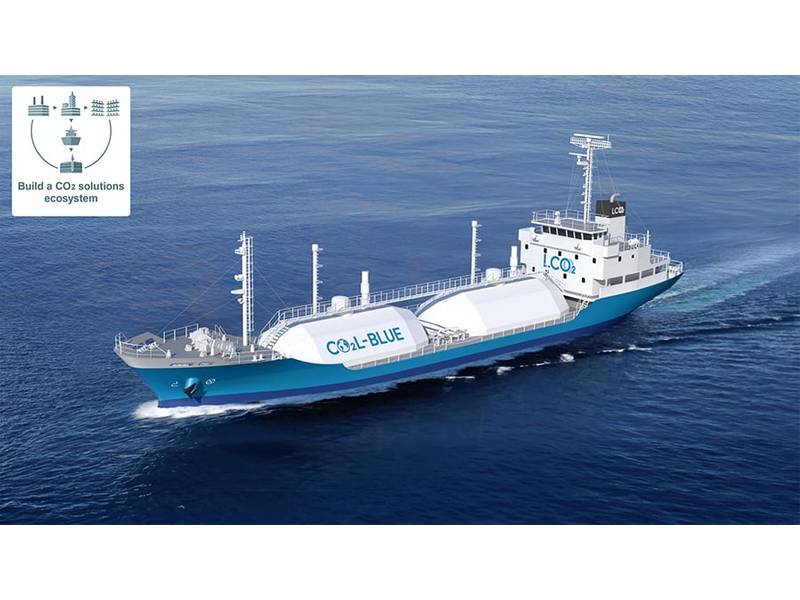Mitsubishi Shipbuilding Launches Liquefied CO2 Carrier Demonstrator Ship
Mitsubishi Shipbuilding has launched a test ship for the transport of liquefied carbon dioxide (LCO2).
The 236-foot ship has a storage capacity of 1,450 m³ and will be used with demonstration carbon capture and storage projects that are underway for Japan’s New Energy and Industrial Technology Development Organization (NEDO).

The Engineering Advancement Association of Japan (ENAA), one of the consignees for the NEDO demonstration projects, will charter the ship from Sanyu Kisen, and install and operate the low temperature, high pressure storage system. Three additional project partners, Kawasaki Kisen Kaisha (“K” LINE), Nippon Gas Line, and Ochanomizu University, will conduct R&D on the pressure control and stability of the LCO2 transported on the ship.
Following outfitting and sea trials, the ship is scheduled to be delivered later this year, and Mitsubishi Shipbuilding has further developments planned for LCO2 vessels. In 2021, the shipbuilder was granted Approval in Principle from Bureau Veritas for its LCO2 carrier cargo tank system.
BV reviewed the design of the LCO2 cargo tank system and confirmed that it meets the technical and regulatory requirements and standards for safety. The inspection of this system was conducted based on the International Gas Carrier (IGC) Code which applies to marine vessels carrying liquefied gas in bulk, as well as BV’s ship classification regulations.
Demand for LCO2 carriers is expected to increase in the future, as carbon capture and storage is attracting attention worldwide as an effective means to achieve decarbonization.
Related News



